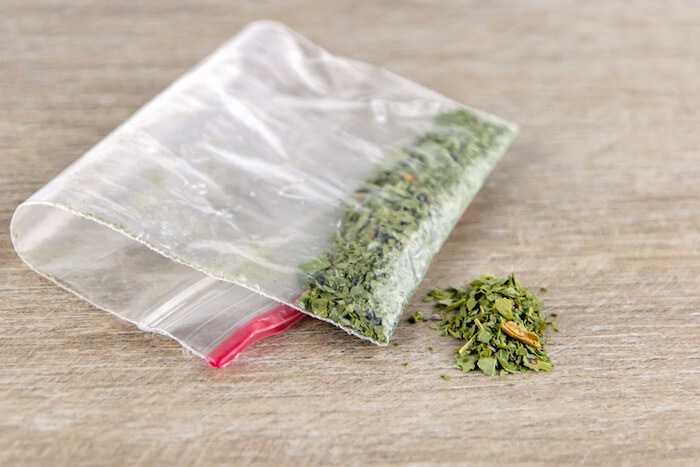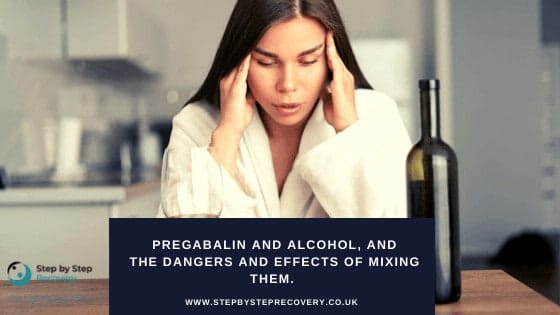The UK is going to reclassify a group of anticonvulsants in an effort to reduce the damage they cause. The death toll have been rising for these substances.

Gabapentin And Pregabalin Crack Down As Death Toll Rises
As of April 2019, the frequently prescribed painkillers pregabalin and gabapentin will be reclassified as Class C controlled drugs under the Substance Misuse Act 1971.
The two drugs reclassification comes after an urgent review by the UK Home Office. A review was called for following an alarming number of deaths attributed to the misuse of gabapentinoids across England and Wales. There is also substantial evidence showing that pregabalin and gabapentin are often abused by drug addicts as an alternative to valium and opiates. They act as anticonvulsants in normal prescriptions.
What Is Pregabalin?
Pregabalin is a powerful gabapentinoid painkiller commonly sold under the brand name Lyrica. It is primarily used to treat nerve related pain, epilepsy and anxiety.
It is often prescribed as a less addictive alternative to controlled opiate pain relief drugs. Pregabalin is commonly used to treat nerve pain related injuries, such as Shingles, Diabetes and spinal nerve and disc damage.
Gabapentin, also a gabapentinoid, is prescribed to treat the same conditions. However, it is the less powerful of the two and has a slower onset of pharmaceutical effects.
Lyrica Abuse Has Lethal Consequences
The Office for National Statistics recorded a shocking 111 deaths for pregabalin and 59 deaths for gabapentin in 2016, where the drug was cited as the main cause of death. The majority of these tragic deaths were attributed to abusing pregabalin or gabapentin by mixing one of the drugs with either heroin or an opioid.
These statistics underlined the urgent need for tighter controls to be put in place to help prevent gabapentin and pregabalin abuse.
This is not new news to us at Step by Step Recovery Lighthouse rehab clinic. If anything, we feel that these measures are a case of too little too late. We regularly detox and treat individuals who have become addicted to prescription painkillers such as pregabalin and gabapentin. Many, but not all, are also addicted to alcohol or other drugs.
Is Pregabalin Addictive?
Initially it was thought that gabapentin and pregabalin were not addictive; as a result NICE recommended that gabapentinoids were first-line prescribed treatment in 2013. Consequently, prescriptions for gabapentinoids have risen by a jaw dropping 88% since 2013.
The original theory that gabapentinoids are non addictive has been well and truly disproved. Any individual who is taking pregabalin or gabapentin on a regular basis will develop a tolerance and a dependence to the drug, even if they are taking the drug as prescribed and not abusing it.
Stopping pregabalin or gabapentin suddenly where there is a dependence is extremely dangerous; it can cause the onset of seizures along with a number of other distressing and dangerous withdrawal symptoms.
Why Do People Abuse Anticonvulsants?
Pregabalin produces feelings of euphoria and drowsiness in many that take it. These are the effects that drug addicts seek. In addition, when combined with alcohol, an opiate, or abused, the effects are much more pronounced.
Gabapentin is also abused for the same reasons but is less sought after than pregabalin. Of the two drugs, pregabalin’s effects are more potent and have a quicker onset.
The effects produced by gabapentinoids are similar to that of opiate based drugs and benzodiazepines.
Why Is Pregabalin Dangerous?
When taken as prescribed and for a genuine reason, gabapentin and pregabalin can both be used safely and effectively. Although a physical addiction may still occur, the medication can safely be stopped through a prescribed reduction regime.
Gabapentin and pregabalin become dangerous when the prescribed dose is exceeded, or they are mixed with alcohol and/or other drugs. Ultimately, this can cause respiratory depression, coma and death.
Will This Affect My Prescription?
If you are prescribed pregabalin or gabapentin your GP will be required to monitor you more closely. This does not mean your prescription will be stopped. However, it means that more checks and controls will be in place to ensure that the medication is right for you. and that your prescription is not being abused.
For those that are new to pregabalin, doctors may try less a addictive alternative as a suitable replacement first. See your doctor if you have a prescription for anticonvulsants.
If you have a dependence to pregabalin and no longer genuinely need the medication, your doctor will be required to prescribe a reduction regime to help you stop the medication safely.
The News Of Reclassification Spread Fast On Twitter
Move to control #pregabalin & #gabapentin comes after #ACMD highlighted rising numbers of fatalities linked to the drugs. Change means it will be illegal to possess them without a prescription and it will be illegal to supply or sell them to others.https://t.co/7L0OiHeomA pic.twitter.com/22V09AbPDD
— Scottish Drugs Forum (@SDFnews) October 24, 2018
How Do I Stop Pregabalin or anticonvulsants?
If you have been abusing pregabalin (taking it when it is not prescribed for you, or it is prescribed for you but you are taking more than the prescribed dose, or you have been mixing it with alcohol and other drugs) it is strongly recommended that you seek pergabalin addiction treatment.
If you have a pregabalin addiction or dependence you may need to consider a drug detox at a rehab centre for your own safety. Alternatively, if you do not have the means to fund a private drug rehab please contact your local drug and alcohol team for support. Your GP will also be able to offer you help and advice on how to stop the medication safely.
Drug Rehab For Pregabalin Addiction
The Lighthouse drug rehab clinic in Essex provide professional medical drug detox and addiction treatment. We are owned by addiction treatment experts Step by Step Recovery. So can offer excellent care for those seeking help for an addiction to pregabalin or gabapentin.
For more information on our prescription drug detox costs and prescription drug addiction treatment programme please call us direct or complete our online form today.
In summary, Step by Step Recovery are here to help you get clean from gabapentinoids. And stay clean. Please don’t delay seeking help for an addiction to these dangerous drugs.We are here to professionally support you each and every step of the way.
Sources and References
- The National Institute for Health and Care Excellence (NICE)
- The Office for National Statistics
- BBC Health
- Pulse Today
Page revised in March 2023, by Danielle Byatt, a Level 4 addictions counselling, Level 5 in Leadership & Management, BA applied social work. and Treatment Director at Step by Step Recovery.



